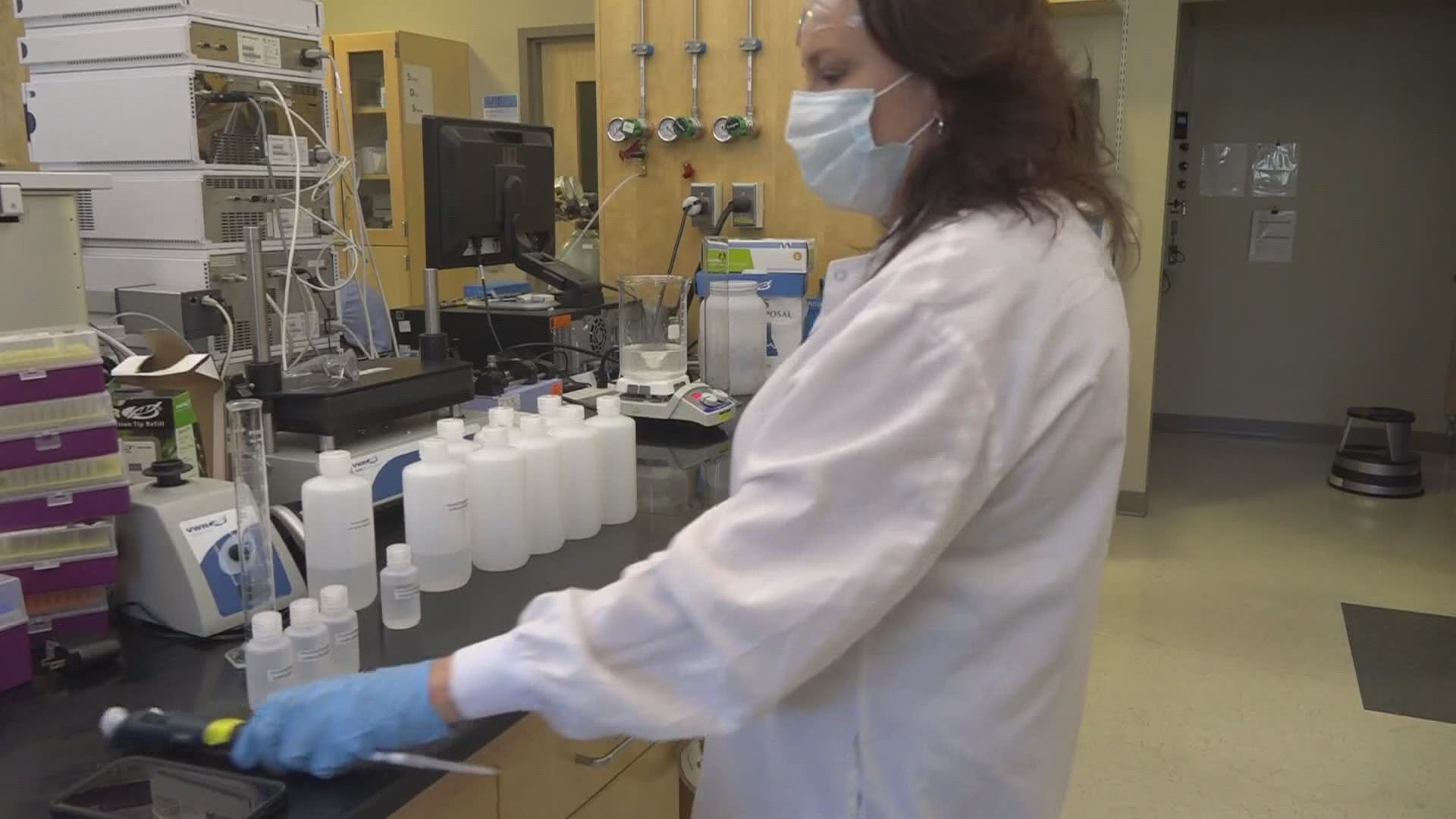PORTLAND, Maine — We've all heard of the concerns over shortages of personal protective equipment (PPE) for health care workers and first responders amid the coronavirus pandemic, especially the "gold standard" N-95 masks.
What is lesser known, however, is that there's a shortage of a special "chemical solution" used to make sure those N-95 masks are protecting folks properly.
"Fit test solution" is a simple chemical compound. You spray the solution near the person's face while they're wearing the N-95 mask. If the mask is properly sealed, the wearer should not be able to taste or smell the solution.
"If it's not sealed, the health care workers are not protected," UNE Professor of Pharmacology Karen Housekanect said.
In January, the state of Maine committed to having all health care workers' N-95 masks fit tested. However, that initially proved impossible because the fit test solution was so difficult to come by.
"It was more than just at a premium," Maine CDC Director Dr. Nirav Shah said. "It was just downright impossible to come by."
"To give everyone a sense of how difficult this solution is to get," Shah said. "When we set this strategic goal for ourselves back in early February, we ordered a box or two of it from our standard supplier. That was back in early February. That order just arrived last week. Had we waited for our standard supply chains to deliver this fit testing solution to us, we'd be four months behind in our work."
But the department did not wait on its standard supply chain, rather looking internally to those in Maine for help.
In mid-April, the director of the York County Emergency Management Agency contacted the University of New England President to see if the university had any fit test solution to spare. This is because N-95 masks are sometimes used in research labs.
The school did have some kits to spare and donated them to the agency. However, when the agency reached out again for more, it was clear they would need to consider different outlets for acquiring fit test solution.
That's when Dr. Karen Houseknecht, UNE associate provost for Research and Scholarship and professor of pharmacology, stepped in to help.
Houseknecht and Research Technician Deborah Barlow learned how to make fit test solution in the lab and began to manufacture it by the hundreds. So far, the lab has made approximately 500 fit test kits, which Houseknecht says equates to approximately 34,000 fit tests.
"To be able to do something so simple, that could have such a big impact, that's what it's all about," Houseknecht said.
"We don't know how long this pandemic will last, but we will provide [fit test] solution for as long as it's needed," Barlow said.
Their commitment allows Maine's health care professionals to move forward with peace of mind. During a recent Maine CDC briefing, Dr. Shah said, "Thanks to the generous manufacturing, thoughtfulness, and donation from our colleagues at UNE, particularly Professor Houseknecht, we've been able to continue our mission and help achieve our strategic goals."
UNE is providing the solution to the Maine CDC, Maine National Guard and nearby counties. Those groups are then responsible for 'fit testing' health care workers and other COVID-19 first responders.

